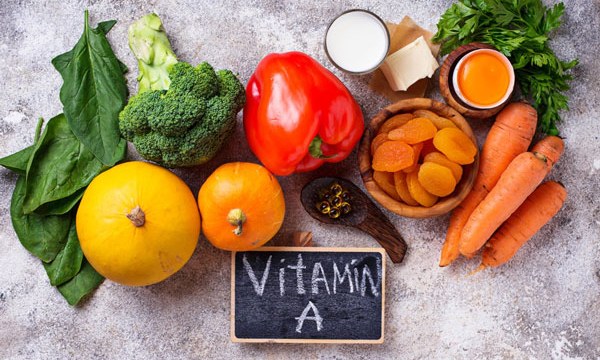One of the most important vitamins that you need to get your daily dose of good health is Vitamin A, also known as retinol. But why Is Vitamin A Important? Retinol helps the body balance hormones, fuels the cells of your body and protects against several health risks, including metabolic disorders like diabetes, as well as cardiovascular and neurodegenerative diseases.
But before you rush to the doctor and get a dose of Vitamin A pills, it’s beneficial to know the importance of this amazing nutrient.
Why Is Vitamin A Important?
It is a fat-soluble vitamin that serves several crucial functions in the body.
- Aids normal cell reproduction
- Helps us to see at night and helps our eyes adjust so we can see in dim or low light conditions.
- Is needed for the appropriate growth of an embryo.
- Helps to keep the skin, as well as the mucous membrane that lines the nose, sinuses, and mouth healthy. This amazing mineral also plays a role in Immune system functions, Bone formation, and Wound recovery.
It can also be helpful for pregnant women, as it can play a part in reducing the risks of miscarriages and low birth weight in babies. It also plays an important role in maintaining the structure and function of the cells in your body. So it is vitally important to get enough Vitamin A in your daily diet.
How to get Vitamin A in your diet?
When you eat food that has Vitamin A, your body will absorb it. If you don’t eat enough of these foods, your body will not absorb them fully.

Therefore, you need to eat enough vegetables, fruits, milk, nuts, and whole grains. You should avoid junk and processed food, which are high in trans fats, which will damage the body’s ability to absorb vitamins. You can also take Vitamin A tablets for a quick boost of the nutrient after checking with your physician.
Foods that are very high in Vitamin A include milk, liver, spinach, red meat, tomatoes, broccoli, carrots, bell peppers, eggs, and strawberries. Broccoli, dark green vegetables like spinach and cabbage, yellow vegetables such as sweet potatoes, peas, spinach, and fresh fruit such as avocados, mangoes, and bananas are also rich in retinol.
For those who can’t absorb enough vitamins from food, taking a supplement is often beneficial. Taking a complete daily vitamin that includes recommended amounts of nutrients like VitaminD, B, and E is one of the best ways to keep yourself healthy. Check with your doctor before taking supplements if you have medical conditions, or just to be sure they are safe for you.
Below is a sample meal plan to get you started.
Simple Vitamin A Filled Meal Plan
| Breakfast Spinach and cheese omelet or 2 boiled eggs |
| Lunch Your favorite salad, made with fresh spinach, iceberg lettuce, or leaf lettuce |
| Afternoon Snack 1 cup of watermelon or mangoes |
| Dinner Sweet Chili Garlic Glazed Salmon and Roasted Carrots with Cardamom Butter |
How Much Do You Need?
According to the National Institutes of Health (NIH), a healthy adult needs 1,000 IU (international units) of Vitamin A per day. So, if you’re taking a supplement, pay attention to the IU level listed on the package. A complete
Do You Get Enough Vitamin A in Your Daily Diet?
The amount of the nutrient you get in your daily diet is only 10% to 20% of the recommended daily amount. You can also add Vitamin A to your smoothies, soups, and salads to get more in Your diet. Here are 20 foods you can eat daily to increase your Vitamin A.
It is uncommon for most people to have a significant retinol deficiency, but not unheard of. Signs and symptoms consist of Dry eyes, night blindness, skin problems, and diarrhea.
Medical Uses of Retinol
Prescription lotions and pills consisting of retinoids, a synthetic form of retinol, are made use of to assist improve severe acne and also psoriasis. They have additionally shown assurance for dealing with various other skin disorders, blemishes, and also premature aging from the sun. Current research studies show that topical forms together with anti-oxidants may help lessen the look of lines and wrinkles.
Vitamin A For Weight Loss
Several studies have been done to investigate the connection between Vitamin A and weight loss. These studies have all reached the same conclusion; getting a sufficient amount of vitamin A is linked to increased weight loss. While there is no magic weight loss pill, vitamin A helps to support weight loss through the various functions it provides. It has a huge impact on our immune system. It helps to protect our body from infections and helps our hearts to stay healthy. All of which makes it easier to exercise and focus on losing weight.


